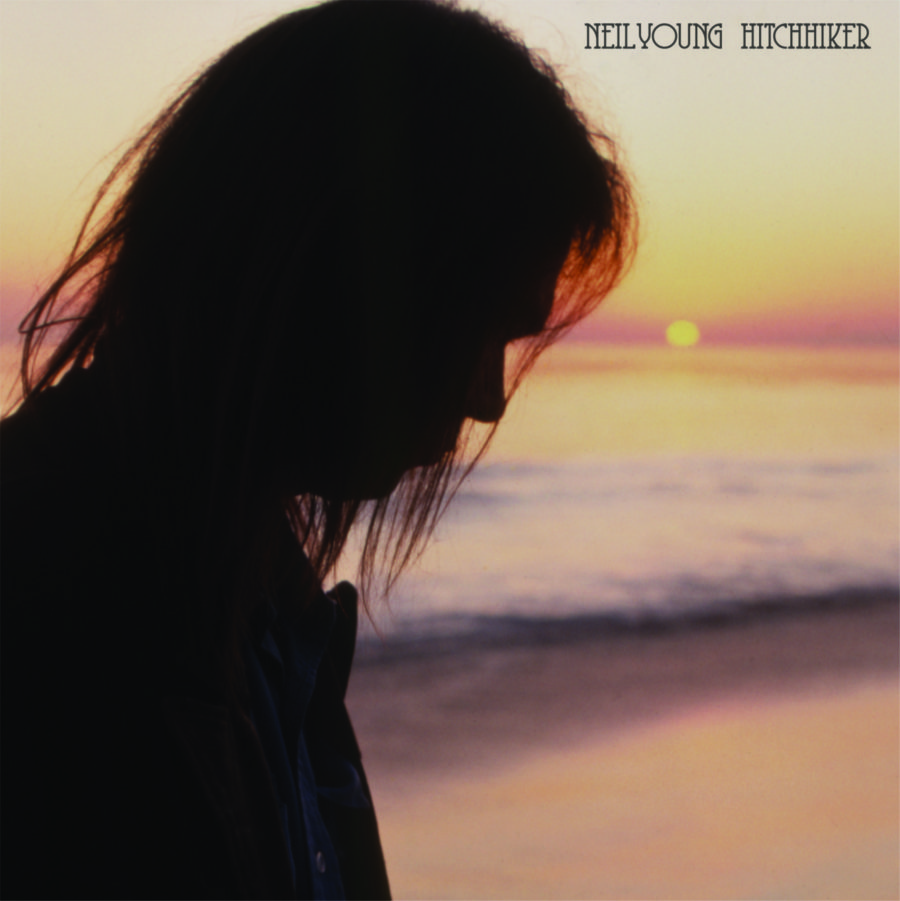Artist: Neil Young
Album: Hitchhiker
Label: Reprise
Release Date: 09.08.2017

To say that Neil Young fans crave a solo acoustic record is like saying water is wet. Hitchhiker is a collection of songs originally recorded in a single August 1976 session at Indigo Ranch Studios. Later, different versions of these songs would be made famous with Crazy Horse and Young’s solo endeavors. One of several “lost” albums, the time feels right for the release of this original acoustic album, with tracks like “Pocahontas,” “Captain Kennedy,” and “Human Highway,” which bring attention to important events and people in history who have been forgotten or overlooked.
Young’s long-time friend and producer David Briggs originally produced these tunes, with John Hanlon stepping in to handle post-production duties of the original recording. Today’s Hitchhiker presents ten unembellished tracks that underscore the purity and modesty of a voice and guitar. “Powderfinger” takes on a softer approach than its incarnation with Crazy Horse, but the anger and angst is still apparent in Young’s voice. Equally moving is “Human Highway,” and though Nicolette Larson’s ethereal backup vocals on the original Comes A Time version are absent here, Young cradles us all on his own with an indescribable feeling of longing and tenderness. That feeling continues on the previously unreleased “Hawaii,” a poignant portrait of a paradise lost that sounds unlike anything he wrote at the time. “Give Me Strength,” the second unreleased track, was sometimes performed live in the ’70s, but never made its way onto an album until now.
“Pocahontas,” off 1979’s Rust Never Sleeps, finds footing almost 40 years later. In the ’70s, Young regularly recalled American history, often times referencing the plight of Native Americans and the imperialism that pushed indigenous people far away from their sacred lands. In 2017 many of those injustices have yet to be rectified (we need not look any further than the Dakota Access Pipeline). The ominous sea shanty of “Captain Kennedy” also resurfaces on the shores of the 21st century as a perpetual opposition to war. When Young wrote the song in the late ’70s, perhaps he was thinking about all those inexperienced men drafted and shipped off to fight in foreign lands. “And when I get to shore/I hope that I can kill good,” Young sings. African Americans were shipped off to Vietnam to fight for another country’s democracy, yet they could not find freedom in their own backyards. In the past decade, some two million men and women have been deployed to Afghanistan and Iraq, and have returned home only to find that the government failed to live up to its promises. Just as 40 years ago, lifelong illnesses and disabilities abound for these individuals, and how do they receive justice? Young is remarkable in his responsiveness to his surroundings. Regardless of the reasons why these songs were finally released as Hitchhiker, it is interesting to see that—decades after they were penned—they continue to be relevant to current events.
At Young’s 1995 Rock and Roll Hall of Fame induction ceremony, Eddie Vedder said that Young “has consistently demonstrated the unbridled passion of an artist who understands that self-renewal is the only way to avoid burning out. For this reason, he has remained one of the most significant artists of the rock and roll era.”
Hitchhiker is a living model of self-renewal not because it offers practical solutions to the dilemmas it so brilliantly explores, but because it awakens our awareness of the human lives at stake.
—Melissa Caruso







Be the first to comment!